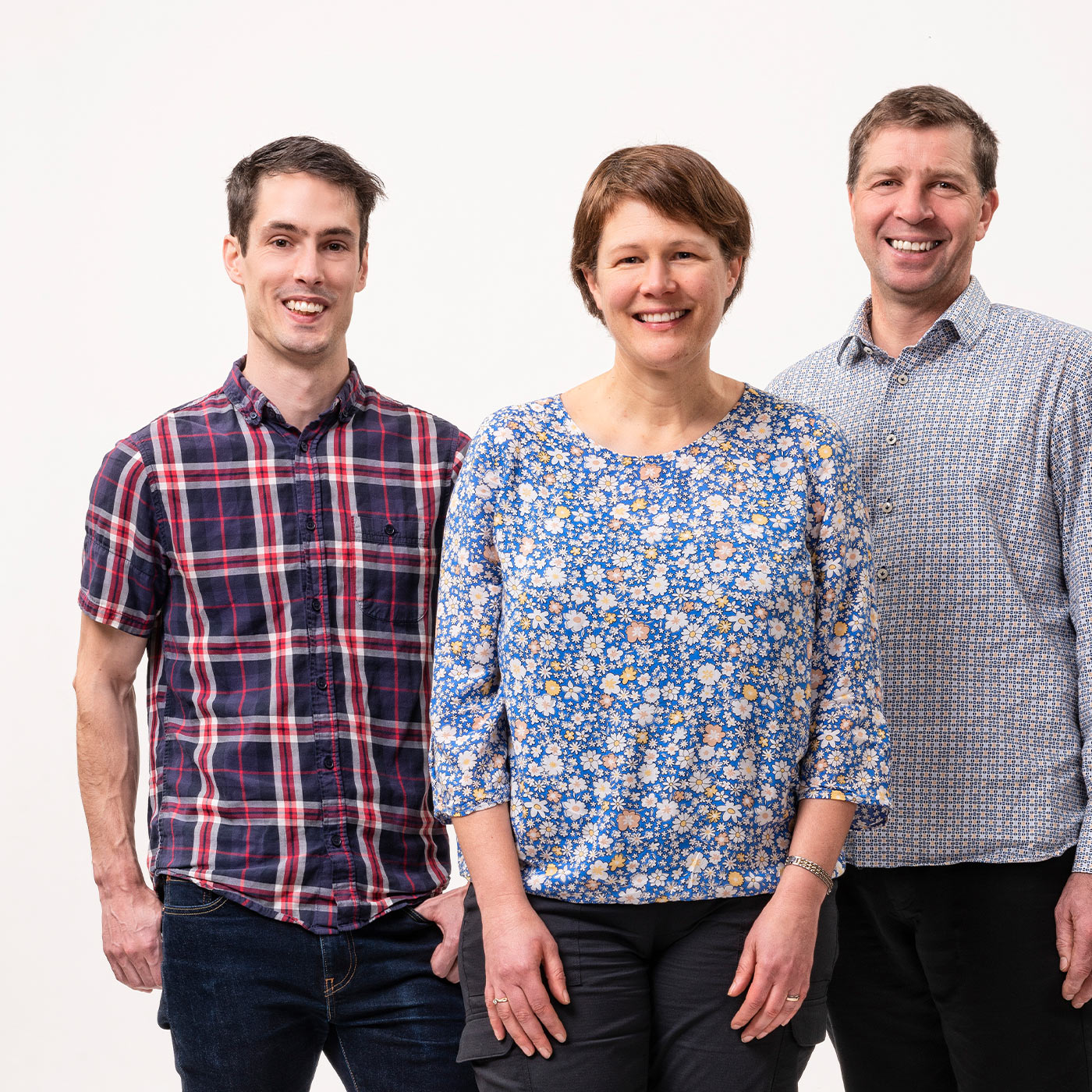Ryegrass re-imagined
A group of University of Otago biochemists is working to improve sustainability on New Zealand's beef, dairy and sheep farms, focusing not on the animals themselves, but on the food they eat: ryegrass.
Ryegrass is the backbone of New Zealand's livestock industry. It fills this country's pastures as the main source of food for both sheep and cows. However, when it flowers, the metabolisable energy it offers to animals drops.
Plant geneticists Professor Richard Macknight, Dr Lynette Brownfield and Dr Rowan Herridge are focused on two ryegrass projects.
The first is to develop a ryegrass that doesn't flower in-field, therefore maintaining a high level of metabolisable energy.
“The aim is ryegrass pasture with improved yield, nutritional value and stress tolerance. This will provide economic benefits and, importantly, will reduce the environmental impact of farming.”
“If grass doesn't flower, farmers will be able to achieve similar nutrition for their animals using less land,” Macknight says. “It would also simplify the farmers' job, as a great deal of work on farms goes into rotating animals around paddocks to manage flowering.”
Macknight explains that ryegrass flowers in the spring, after experiencing low winter temperatures, a process called vernalization.
Using what is known about the genes and pathways controlling the flowering time in other plants such as maize and rice and applying it to ryegrass, his team is developing plants that don't flower in-field because the vernalization requirement is not met.
Seed production companies will still be able to make these plants flower and head for seeds by using artificial cold treatments that do meet the vernalization requirements.
Alongside this flowering time research, the team is also developing F1 hybrid ryegrass.
“We have designed a novel strategy that leverages international research and biotechnological tools to generate F1 hybrids,” Herridge says. “The aim is ryegrass pasture with improved yield, nutritional value and stress tolerance. This will provide economic benefits and, importantly, will reduce the environmental impact of farming: reducing greenhouse gas emissions, chemical inputs such as fertiliser, and providing more efficient use of land.”
The team says their research is well supported by New Zealand's ryegrass breeding and seed production companies, and could be making a difference on farms within 10 years.
“It's tremendously exciting,” Brownfield says. “We've worked in the lab for years. It would be so nice to see our work making a difference out in the world.”
Funding
MBIE Smart Ideas
Otago Innovation Ltd
Barenbrug
AGMARDT
Dr Rowan Herridge, Dr Lynette Brownfield and Professor Richard Macknight: “We've worked in the lab for years. It would be so nice to see our work making a difference out in the world.”
